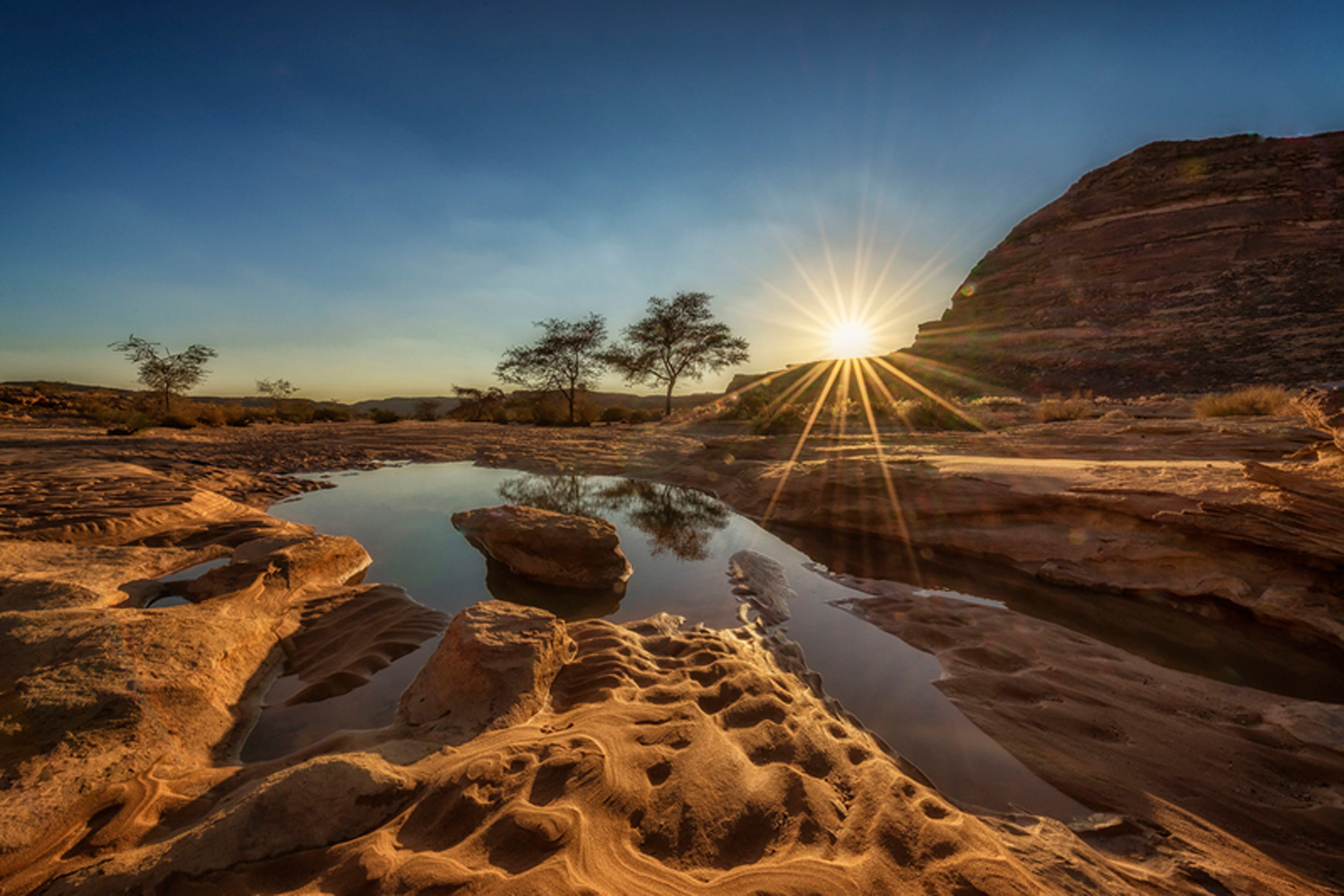
Film AlUla says it is promoting the tourist hotspot as an ideal location for international film and TV production
Saudi Arabia is continuing to promote the historic region of AlUla to Hollywood producers by participating in the 78th edition of the Venice International Film Festival.
Film AlUla said it is promoting the tourist hotspot as an ideal location for international film and TV production.
The delegation from the Royal Commission for AlUla’s film agency joined other Saudi entities including the Saudi Film Commission and the Red Sea International Film Festival (RSIFF), along with a delegation of rising young filmmakers from the region.
Following the successful showcase at the Cannes International Film Festival in July, the three organisations continued their mission to build international relationships within the industry and introduce Saudi Arabia’s burgeoning film sector to global audiences.
Production companies filming in AlUla can benefit from competitive rebates and a range of incentives such as free bespoke production support, location scouting, expert knowledge of filming in Saudi Arabia, assistance in sourcing equipment, and professional film crews from both the Kingdom and neighboring countries.
In addition, the construction of the new purpose-built film crew accommodation, Film Camp, was recently completed.
Stephen Strachan, film commissioner at the Royal Commission for AlUla, said in comments published by Saudi Press Agency: “International festivals such as Venice provide us with a great opportunity to interact with the film community, introduce the incredible and diverse location of AlUla, and promote the Saudi film industry.
“We are making great progress in developing the infrastructure and building an ecosystem for filmmaking with easy access to crew, locations and facilities. The region is beginning to draw in a bigger variety of productions, including more foreign productions and we look forward to welcoming them to AlUla.”
In April, Saudi Arabia announced it had created a new department to help turn AlUla into the backdrop for future Hollywood movies.
The new department has focused initially on supporting and stimulating local productions by working with several government agencies in the field of filming and producing films in AlUla, as a part of the kingdom’s Vision 2030.
Several international producers have also expressed their interest in exploring AlUla as a destination for their films while a film produced by Hollywood is expected to be announced soon.
Saudi Arabia’s move to attract the film industry to AlUla comes as millions of cinema tickets have been sold in the country since a suspension was lifted a few years ago – that’s despite enforced closures throughout the coronavirus pandemic.
Since the ban was lifted by the General Authority for Audiovisual Media back in 2018, dozens of cinemas have opened in the kingdom.
The Film AlUla announcement followed the unveiling of the inaugural masterplan for the development of AlUla in the northwest of Saudi Arabia.
AlUla CEO: Why Saudi tourism hub is a big opportunity for private investors
Royal Commission for AlUla boss urges companies to be involved in a ‘new frontier of environmental, social and economic growth’
Conceived as a living museum, the plan includes 15 new cultural assets, a 9km rejuvenated cultural oasis, 10 million square metres of green and open spaces and a 46km low-carbon tramway, while contributing to AlUla’s hospitality offer with 5,000 additional hotel keys.
Named The Journey Through Time Masterplan, the 15-year programme will be implemented in three phases until 2035 with the first phase set to be finished by 2023.
Once entirely complete in 2035, it is anticipated that the development will boost the population of AlUla to 130,000 and created 38,000 jobs, while contributing SR120 billion ($32 billion) to the kingdom’s GDP.
Located 1,100km from Riyadh, AlUla covers 22,561 sq km and includes a lush oasis valley, towering sandstone mountains and ancient cultural heritage sites dating back thousands of years to when the Lihyan and Nabataean kingdoms reigned.
Source: Read Full Article












